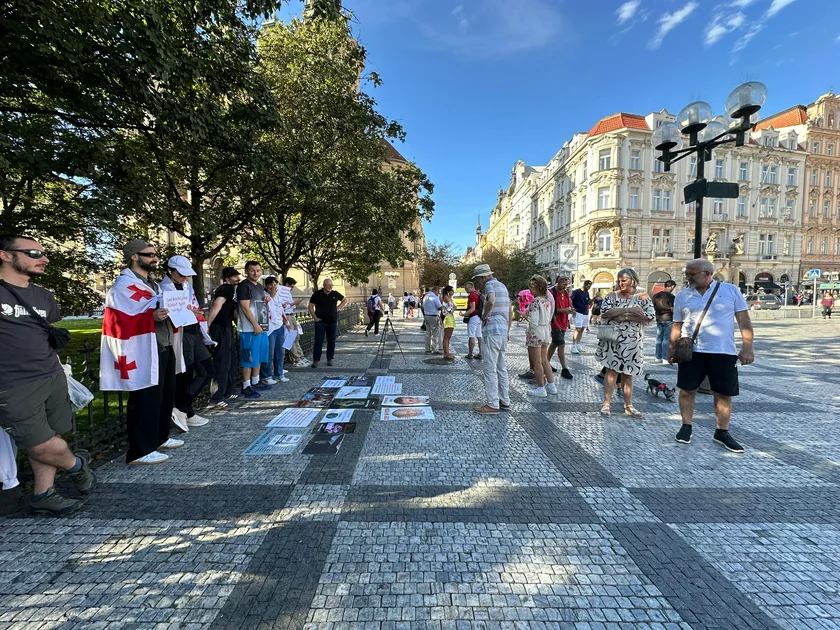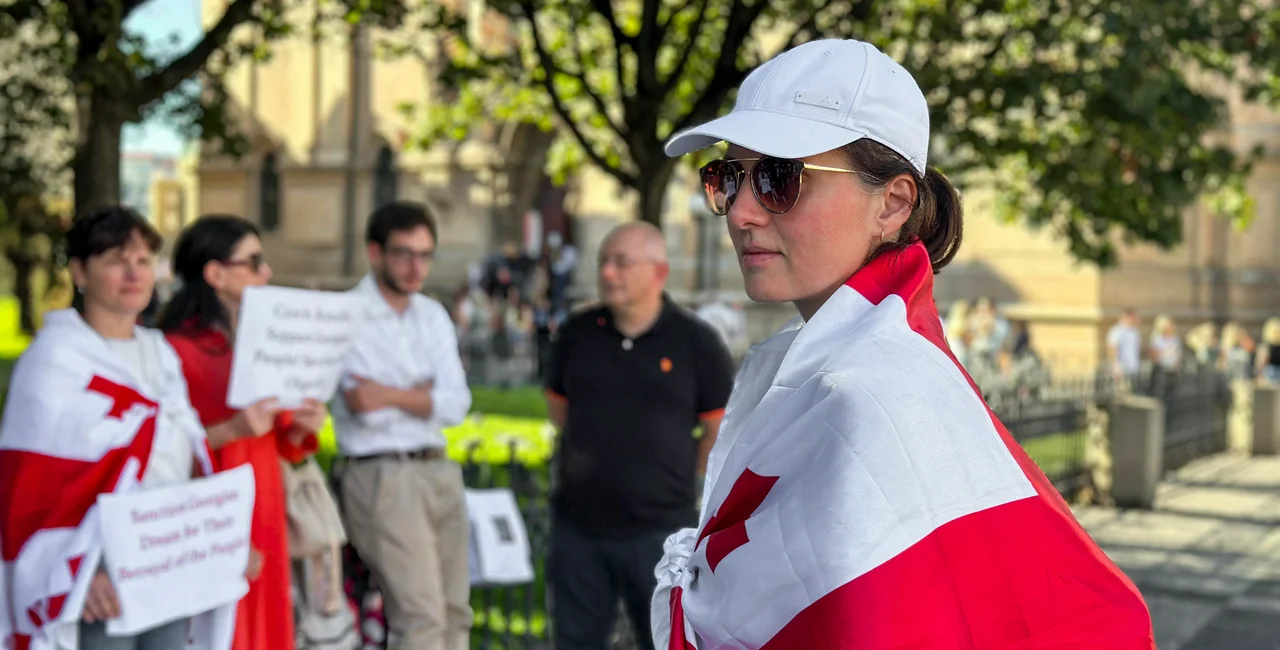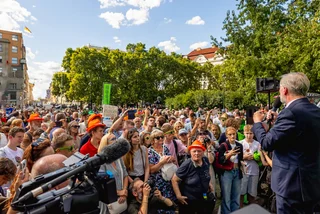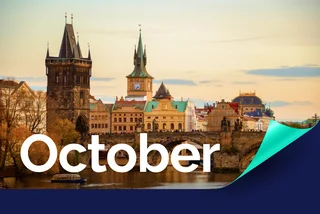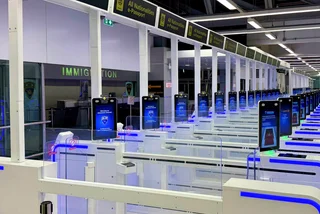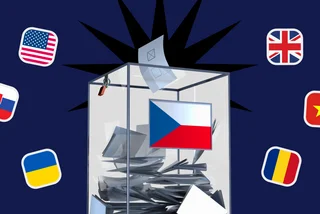On a chilly autumn Saturday in Prague’s Old Town, a small but determined group of Georgians gathers, holding flags, posters, and speaking with passersby. Parallel to Czechia's election weekend on Oct. 3-4, Georgia held a regional vote at the same time, widely deemed illegitimate by most opposition parties.
Far from home, the sharp and very uncomfortable contrast hits hard for Georgian expats living in Prague.
PARTNER ARTICLE
Though hundreds of kilometers away from the capital Tbilisi, where protests against the ruling party Georgian Dream and its leader oligarch Bidzina Ivanishvili have continued for over 300 days, the emotional intensity has been palpable: similar to the Czech 2025 general election.
Around 2,000 Georgians reside long-term in Czechia. For many of these expats in Prague, protesting abroad is not just symbolic, but a vital connection to Georgia’s struggle. Similar diaspora protests have sprung up across Europe and the U.S., but in Prague they have become a weekly ritual for almost exactly one year; since early November 2024.
The demonstrators are responding to the 2024 parliamentary election fraud, a pro-Russian government, and the detention of dozens of political prisoners. They denounce violence against activists, journalists, and the halt of EU membership talks.
A far cry from Czechia’s elections
On Oct. 3-4, Czechs went to the polls en masse (almost 70 percent of eligible voters; a turnout not seen since 1998) to freely elect their parliament. For Georgians in Prague, however, the same dates were a focal point for protest.
Unlike in Czechia, the elections are very far from fair. While their host country exercises democracy, their homeland will once again demand it in the streets.
Aleksandre, an organizer, and a Georgian-born Czech citizen who could vote in both elections, reflected before both countries' elections: “Oct. 3-4 in Czechia are days when you can freely decide your own future, and feel that your voice matters," he says.
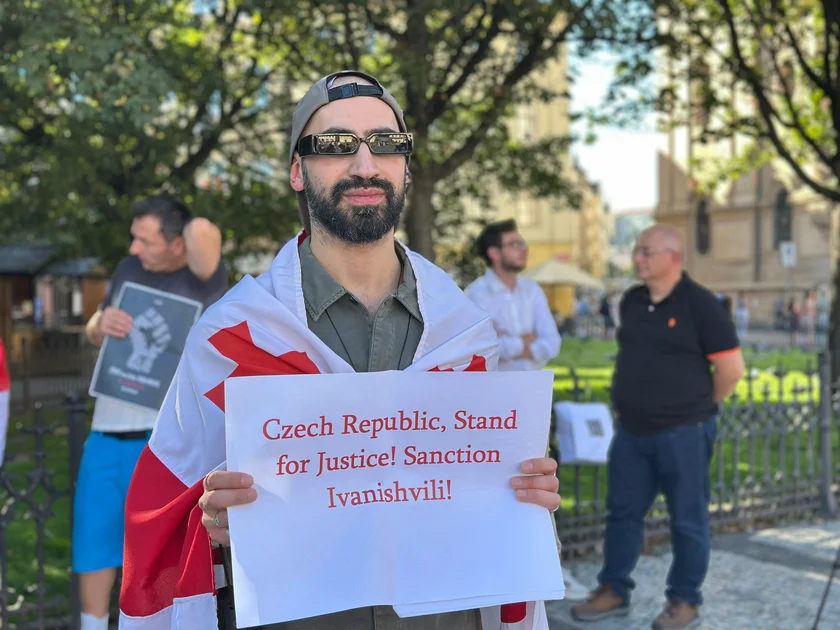
"This is the true feeling of democracy. In Georgia, however, the same period is full of tension. It is no longer about freedom of choice, but a fight for the country’s survival," Aleksandre added.
“We consider the Oct. 4 Georgian elections illegitimate as they are held by a faux government that is recognized by almost no EU member state. Any act carried out by an illegitimate government cannot be considered a real political event.”
Ann, also a protest participant, reflects on the stark difference between the Czech and Georgian elections: “Going to the Georgian polls means participating in the government's spectacle.” Ann explains that changing the current regime, if possible to do via elections, will happen through revolution.
Expats in Prague have more power than they think
For these expats, protest is both civic and personal.
“I came to Prague at the end of January, my whole family lives in Georgia, and every day I keep hoping that the political situation will change in the country, Georgia will return to a European path, and I will definitely return to my child and family,” says Ann.
“I am only physically in Prague; everything else—my past, my future, my emotions, my hopes, and, most importantly, my people—is in Georgia," she says.
Soso, a long-time activist from Georgia who has been living in Prague for three and a half years and has been joining the protest since November, says:
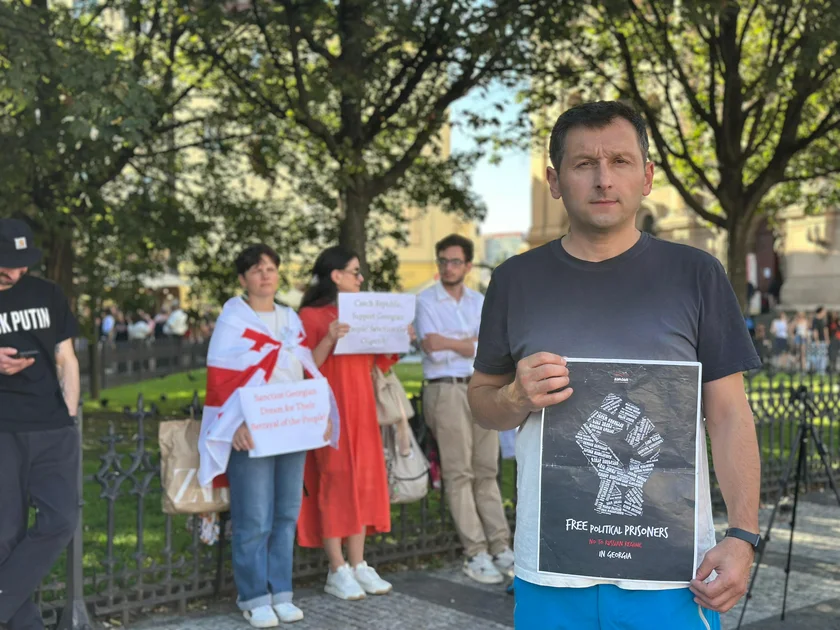
“The Prague protest has turned into a kind of schedule: like a job I have one day a week. It is very important for [protesters in Georgia] to see constant support from expats; it gives them more strength than one might think.”
Beyond visibility, the Prague protest attracts media and diplomatic attention. Aleksandre notes: “A properly organized demonstration abroad also reaches media and diplomatic circles. International pressure often starts exactly from here.”
‘A bridge that has no borders’
Aleksandre also stresses the symbolic power of the gatherings:
“It is a bridge and also a demonstration that solidarity has no borders. Yes, you are far away in Prague, but when you stand alongside people and talk to locals and tourists about the events happening, you feel very close to your homeland. This is simultaneously a human and civic reaction.”
For Georgian expats in Prague, the overlap of Czech and Georgian elections is a stark reminder of what they lack at home. While Czechs freely chose their leaders in fair contests, Georgians abroad continue to protest a system where such rights are denied.
Each chant, flag, and poster makes clear that distance does not silence them: their call is for the same democracy they see around them in Prague.
